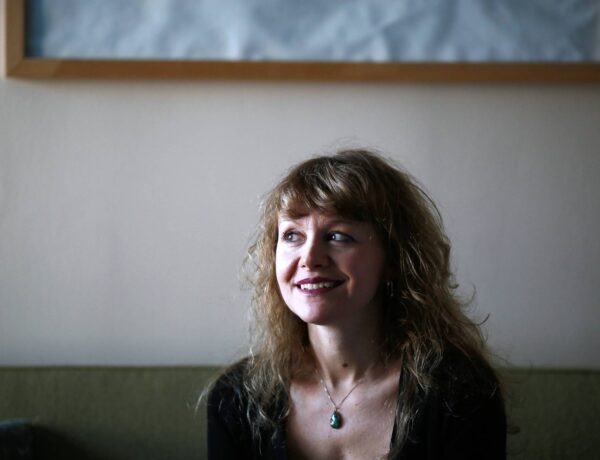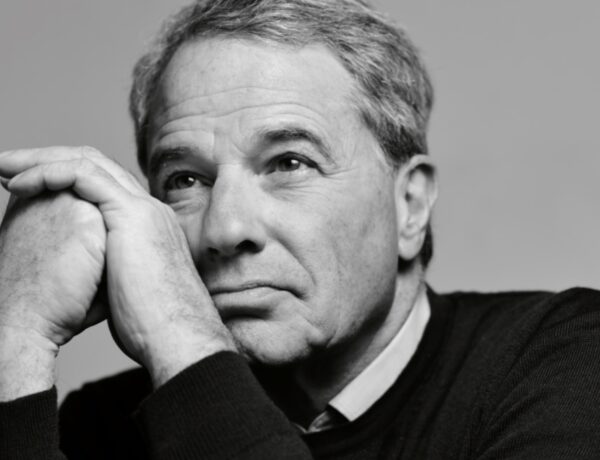Graeme Macrae Burnet is a Scottish novelist, best-known for his award-winning books, including The Disappearance of Adèle Bedeau, which earned him the Scottish Book Trust New Writer Award in 2013 and His Bloody Project, which was shortlisted for the Man Booker Prize in 2016.
He has written articles for publications like The Guardian, The Observer and Le Monde, and has won the Author of the Year category in the Sunday Herald Culture Awards in 2017. His novels often experiment with the genre of “false true crime” and his latest work, Case Study (2021), was longlisted for the Booker Prize in 2022.
Graeme has degrees in English Literature and International Security Studies from Glasgow and St Andrews universities, respectively, and has spent several years teaching English as a second language in various cities before returning to Glasgow to work in the independent television industry for eight years.
Each week, we publish a new daily writing routine from a famous author. Subscribe to our newsletter so you don’t miss out!
Hi Graeme! We’re delighted to have you as a guest on Famous Writing Routines. For our readers who may not be familiar with your work, could you please give us a brief introduction to yourself?
I’m the author of four novels: The Disappearance of Adèle Bedeau, His Bloody Project, The Accident on the A35 and Case Study. His Bloody Project was shortlisted for the Booker Prize in 2016 and Case Study was longlisted for the same prize in 2022 and included in the New York Times 100 Notable Books of 2023. My books have been published in over twenty languages.
I come from the industrial town of Kilmarnock in the west of Scotland, best known as the home of Johnny Walker whisky and the first edition of Robert Burns’ poems. I now live in Scotland’s largest city, Glasgow.
What draws you to the genre of crime and mystery in your writing?
I don’t feel that I am particularly drawn to the crime genre. It’s true that two of my novels would certainly be categorized as ‘crime’, but what interests me most in these (and in all my books) is character.
So even in my crime novels what I’m setting out to do is not to solve a mystery, but to examine the effect of certain events (which may or may not be a crime) on the central characters. I’m interested in people’s motivations. What makes someone act as they do, whether that is a criminal act or choosing a sandwich filling?
Can you share your experience of having His Bloody Project translated into over 20 languages?
Having your work translated into an amazing experience. One of the first things you learn when your work is published is that it no longer belongs to you. It belongs to the readers, each of whom interprets the book in their own way and according to their own history and personal experience. That process is multiplied when readers come from very different cultures from that in which the book is set.
Particularly with His Bloody Project, which is set in a tiny village in the Scottish Highlands in 1869, readers in different countries found parallels to the events described in the book to events or situations in their own countries’ history. So the book takes on all sorts of different meanings and interpretations.
Your novels have been set in various locations, from Scotland to France, how does the setting influence your writing process? Do you typically visit those countries while researching or writing?
The setting has no effect at all on my writing process, but, yes, I love research and like to walk the streets of the places I write about. In fact I’ve just returned from a week in Saint-Louis, the small French town where my two (soon to be three) crime novels are set. Paradoxically, however, I’ve come to think that the more you get to know a place, the harder it might be to write about. Reality can shackle the imagination.
Discover the daily writing habits of authors like Stephen King, Neil Gaiman, and Gillian Flynn with Famous Writing Routines Vol. 1 and learn how to take your writing to the next level. Grab your copy today!
What does a typical writing day look like for you?
I’m not much of a morning person, so my routine when I’m at home in Glasgow is to deal with any emails, social media or other bureaucratic stuff in the morning. Then I head out to the nearby Mitchell Library.
If possible I leave my phone at home and I use an internet blocking app (freedom.com) on my laptop. Once in the library, I usually read for a bit, then I will force myself to make a start. My aim is to write 1000 words a day. If I do that, no matter how rubbish those words are, I feel like I’ve done my day’s work and I can go home happy.
How do you handle writer’s block or moments when the words don’t seem to be coming as easily?
The words never come easily. Writing for me is a constant struggle against my own ill-discipline and the inner voices that tell me that whatever I’m working on is shit and that no one will ever want to read it. But while it is a struggle, I wouldn’t call that writer’s block. I’ve never met a writer who uses the term writer’s block.
Writing a novel is a pretty long process and you just have to keep going. If I’m really having a hard time—and often as I walk to the library I have no idea what I’m going to write that day—I might just focus on some inanimate object in the character’s environment and describe it in great detail, trying to be as precise as I can, then, as I write, I’ll find that somehow a story begins to take shape.
Do you have any specific tools or resources that you use to help with your writing?
Freedom is the only techie thing I use. If I go away somewhere for a retreat, which has become an increasingly important part of my process, my routine changes. I tend to begin writing later and I sometimes crack open a bottle of red wine. I wouldn’t recommend writing drunk, but I find a couple of glasses can loosen the inhibitions.
How do you balance the demands of writing with other responsibilities in your life? Do you have any strategies that help you block out time for your work?
I don’t really have any other responsibilities, but promoting my work, going to festivals, etc. takes up quite a lot of my time, depending on what part of the publishing cycle I’m in. Generally speaking I like to block out solid chunks of time to write. I’m not someone who’s going to flip open my laptop in the airport. I need to feel immersed in whatever I’m working on.
If you could have a conversation with an author throughout history about their writing routine and creative process, who would that person be?
As I’m sure you’ll have found from the responses on your website, every writer goes about things in their own way. I might be vaguely curious about how another writer does things, but it would have no effect on how I work. But the writers I’d be most curious to talk to about that sort of stuff would be Dostoyevsky and Annie Ernaux.
I’d love to know what you’re reading at the moment. What have been some of your favorite books you have read recently?
Over the last few years I’ve been devouring everything that Annie Ernaux has written. I’m in awe of her precision, honesty and mastery of language and form. I also just read The End of Eddy by Edouard Louis which was something of a sensation in France when it was published in France in 2014 – a blistering read. Last year, I re-read about ten Georges Simenon novels – he is the author I return to most, the master craftsman of fiction.
What does your current writing workspace look like?
I have a very nice booklined study in my flat, but I never write there. Instead, as mentioned, I use the public desks in my local library. There are fewer distractions there and I like to feel that I’m going out to work. I also like the separation between home and workspace.

Affiliate disclaimer: Some links on this website are affiliate links. We may earn a small commission if you make a purchase through these links, but only promote products we truly believe in. We disclose affiliate links and give honest reviews.



No Comments